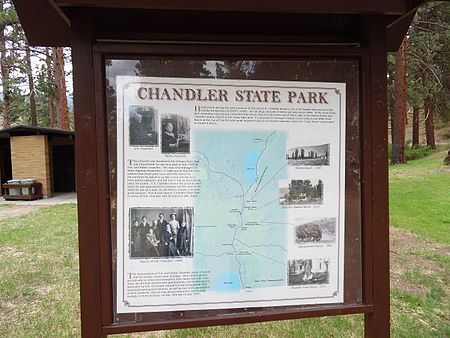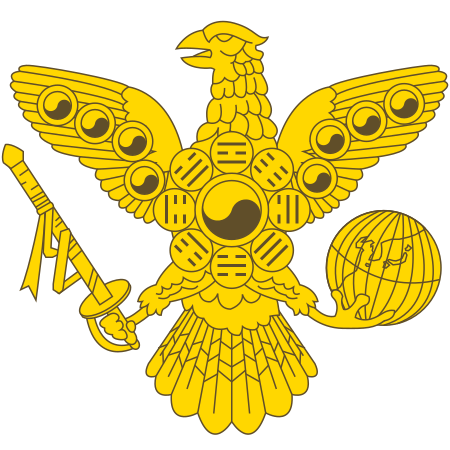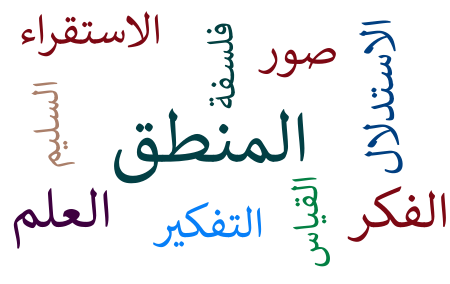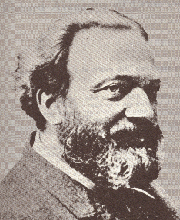Combatant
|
Read other articles:

Liga 3 Papua 2018Musim2018JuaraPersemi Mimika← 2017 2019 → Liga 3 2018 Papua adalah musim kompetisi Liga 3 zona Provinsi Papua. Liga 3 provinsi Papua diikuti oleh 20 klub amatir. Persido Dogiyai adalah juara bertahan, tetapi absen pada musim ini. Peserta Berikut adalah tim-tim peserta di Liga 3 Zona Papua musim 2018[1] Grup A Persindug Nduga Persintan Intan Jaya Persimi Sarmi PS Elang Brimob Nafri FC Persiker Keerom Grup B Persimer Merauke Persipuja Puncak Jaya Biak United FC Waribo …

American religious college Not to be confused with Hebrew University of Jerusalem or Hebrew Union College. Hebrew CollegeFormer nameHebrew Teachers CollegeTypePrivate collegeEstablished1921FounderLouis HurwichAffiliationBoston Theological InstitutePresidentRabbi Sharon Cohen AnisfeldLocationNewton Centre, Massachusetts, United StatesWebsitehebrewcollege.edu Hebrew College is a private college of Jewish studies in Newton Centre, Massachusetts. Founded in 1921, the college conducts Jewish scholars…

Japanese politician Takeo Hiranuma平沼 赳夫Minister of Economy, Trade and IndustryIn office6 January 2001 – 22 September 2003Prime MinisterYoshiro MoriJunichiro KoizumiPreceded byPosition establishedSucceeded byShoichi NakagawaMinister of International Trade and IndustryIn office4 July 2000 – 6 January 2001Prime MinisterYoshiro MoriPreceded byTakashi FukayaSucceeded byPosition abolishedMinister of TransportIn office8 August 1995 – 11 January 1996Prime Ministe…

Secondary international airport serving London, England, United Kingdom Gatwick redirects here. For the neighbourhood in Surrey, see Gatwick, Surrey. This article needs attention from an expert in Photography. The specific problem is: New images are needed as the given exterior and interior pictures are seriously outdated and lack both quality and variety. WikiProject Photography may be able to help recruit an expert. (November 2022) London Gatwick AirportIATA: LGWICAO: EGKKWMO: 03776SummaryAirp…

State Park in lake County, Oregon Chandler State WaysidePicnic area at Chandler State WaysideShow map of OregonShow map of the United StatesTypePublic, stateLocationLake County, OregonNearest cityLakeviewCoordinates42°24′26″N 120°17′23″W / 42.4071023°N 120.2896822°W / 42.4071023; -120.2896822[1]Area85 acres (34 ha)Elevation4,491 feet (1,369 m)[1]Operated byOregon Parks and Recreation Department Chandler State Wayside (also k…

Monarchy in East Asia (1897–1910) Empire of Korea대한제국 (Korean)大韓帝國Daehan Jeguk (RR)Taehan Cheguk (MR)1897–1910 Flag Imperial Seal Motto: 광명천지光明天地Illuminate Heaven and EarthAnthem: 대한제국 애국가大韓帝國愛國歌Patriotic Hymn of the Great Korean Empire (1902–1910)National seal:大韓國璽Emblem:Territory of the Korean Empire 1903–1905. The disputed Gando and Samjiyon regions are shaded in lighter green.StatusSovereign …

السبب المشكوك فيه (بالإنجليزية: questionable cause) - المعروف أيضًا باسم المغالطة السببية (بالإنجليزية: causal fallacy) أو السبب الخاطئ (بالإنجليزية: false cause) أو اعتبار ما ليس بعلة علة[1] (بالإنجليزية: non-cause for cause) (من اللاتينية (باللاتينية: non causa pro causa)) - هي فئة من المغالطات غير الصورية …

Bani Nadir (bahasa Arab: بَنُو ٱلنَّضِير, Ibrani: בני נצ'יר) adalah suku Yahudi yang tinggal di Arab utara tepatnya di Madinah hingga abad ke-7. Suku tersebut menolak untuk masuk Islam seperti yang diperintahkan Muhammad dan akibatnya suku tersebut diusir dari Madinah.[1] Bani Nadir kemudian merencanakan Pertempuran Khandaq bersama dengan suku Quraisy.[2][halaman dibutuhkan] Mereka kemudian berpartisipasi juga dalam pertempuran Khaybar.&#…

مدرسة ثانوية عمر الخيام دبیرستان عمر خیام مدرسة ثانوية عمر الخيام معلومات الموقع الجغرافي المدينة نيسابور البلد إيران تعديل مصدري - تعديل مدرسة عمر الخيام الثانوية من المدارس العريقة نيسابور ومن أقدم المدارس الإيرانية، مسجلة في منظمة التراث الثقافي في إيران. كان اف�…

City in Ohio, United StatesFairborn, OhioCityDowntown Fairborn FlagLogoMotto: A City in MotionLocation of Fairborn, OhioLocation of Fairborn in Greene CountyCoordinates: 39°47′28″N 83°59′50″W / 39.79111°N 83.99722°W / 39.79111; -83.99722CountryUnited StatesStateOhioCountyGreeneIncorporated1950[1]Government • MayorDaniel R. KirkpatrickArea[2] • Total14.725 sq mi (37.77 km2) • Land14.71 …

Artikel ini menggunakan banyak istilah asing yang perlu dihapus atau diganti dengan padanan kata dalam bahasa Indonesia. Deskripsi pemercontohan pada statistik Sampel atau percontoh[1] (terkadang disebut juga cuplikan) merupakan bagian dari populasi yang dipelajari dalam suatu penelitian dan hasilnya akan dianggap menjadi gambaran bagi populasi asalnya, tetapi bukan populasi itu sendiri.[2] Sampel dianggap sebagai perwakilan dari populasi yang hasilnya mewakili keseluruhan gejala…

Book by Jon Cleary Four-Cornered Circle First editionAuthorJon ClearyLanguageEnglishPublisherHarperCollinsPublication date2007Publication placeAustralia Four-Cornered Circle is a 2007 novel written by Australian author Jon Cleary,[1] the last published prior to his death in 2010. Synopsis The plot revolves around two sisters, one of whom develops feelings for the other's husband. The story is told from the point of view of the sisters, which Cleary admits was a difficult writing challeng…

غينيا بيساو في الألعاب الأولمبية الصيفية 2016معلومات عامةالرياضة رياضات أولمبيةsummer sport (en) حدث شارك فيه الألعاب الأولمبية الصيفية 2016 البلد غينيا بيساو جزءٌ مِن سلسلة غينيا بيساو في الألعاب الأولمبية بتاريخ 2016 حامل العلم Augusto Midana (en) حجم الفريق في البداية 5 تعديل - تعديل مصدري - ت…

澳門第四屆立法會選舉 Eleições para a 4.ª Assembleia Legislativa de Macau(葡萄牙語) 澳門特別行政區選舉政治專題 ‹ 2005 • • 2013 › 2009年9月20日 選舉類型 立法會議員選舉 議席數目 29 選舉席次 12(直接選舉) 選舉統計 選民人數 248,708 總投票數 149,006 總投票百分比 有效選票 141,797 空白選票 711 無效選票 6,498 59.91% ▲ 2.6% 麥瑞權 …

Эта статья опирается на источники, аффилированные с предметом статьи или иной заинтересованной стороной. Это может вызвать сомнения в нейтральности и проверяемости представленной информации. Такие источники также не показывают значимость предмета статьи. Статью мож�…

2017年新加坡羽毛球超級賽賽事資料日期2017年4月11日-4月16日屆次第28屆級別超級系列賽總獎金35萬美元舉辦地點 新加坡比賽場地新加坡室内体育馆← 上一屆 下一屆 → 2017年新加坡羽毛球超級賽為第28屆新加坡羽毛球公开赛,是2017年世界羽聯超級系列賽的第四站。本屆賽事於2017年4月11日至4月16日在新加坡的新加坡室内体育馆舉行,主贊助為OUE,總獎金為35萬美元。 優…

German-Swiss philosopher (1843–1896) Richard AvenariusBorn19 November 1843ParisDied18 August 1896 (1896-08-19) (aged 52)ZürichAlma materUniversity of ZurichUniversity of BerlinLeipzig UniversityEra19th-century philosophyRegionWestern philosophySchoolEmpirio-criticism(Critical positivism)[1]InstitutionsLeipzig UniversityUniversity of ZurichMain interestsEmpirical knowledge, philosophy of scienceNotable ideasEmpirical criticism Richard Ludwig Heinrich Avenarius (19 Novemb…

Main article: Football at the 2016 South Asian Games – Men's tournament Below are the squads for the Men's football tournament at 2016 South Asian Games, hosted by India, which will take place between 5 February 2016 and 16 February 2016. Football at the2016 South Asian GamesTournamentmenwomenSquadsmenwomenvte Group A India Coach: Lee Johnson No. Pos. Player Date of birth (age) Caps Goals Club 1 1GK Rehenesh TP 16 1GK Kamaljit Singh 15 1GK Laxmikant Kattimani 2 2DF Narayan Das 3 2DF Kous…

ساسكيا إسكن (بالألمانية: Saskia Esken) رئيسة الحزب الديمقراطي الاجتماعي الألماني بالشراكة مع نوربرت فالتر بوريانز تولت المنصب6 ديسمبر 2019 النائب كلارا غيويتز هوبرتوس هايل كيفن كونيرت سربيل مدياتلي أنكه ريلينغر مالو دراير (بالوكالة)أندريا ناليس عضو في البوندستاغ عن بادن-ف…

American knifemaker and designer William W. HarseyBornOregon, United StatesOccupation(s)Knife designer, custom knife maker William Harsey Jr. (born 1955)[1] is an American knifemaker and designer who works with several knife companies, including Gerber Legendary Blades, Lone Wolf Knives, Spartan Blades, Ruger/CRKT, Fantoni, and Chris Reeve Knives. Personal history Harsey was born into a logging family in Oregon in 1955. He received a BFA from the University of Oregon.[1] Work in …
